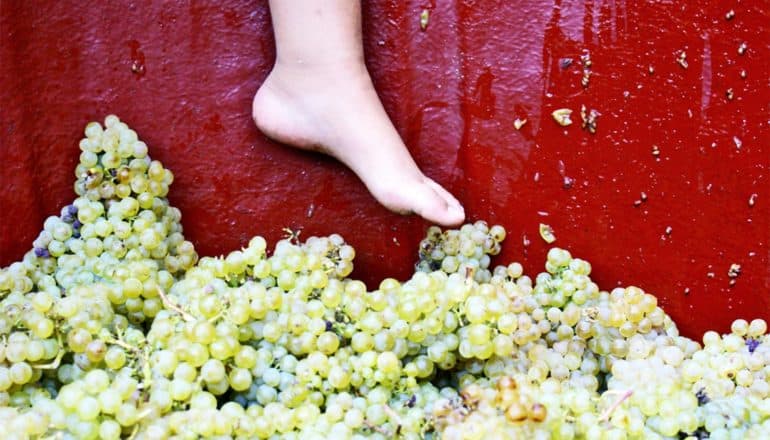
When researchers deciphered the genome of the Chardonnay grape, they uncovered a surprise: grapes inherit different numbers of genes from their mothers and fathers.
As reported in Nature Plants, the researchers studied structural variants, or chromosome changes, in the genomes of the Chardonnay and Cabernet Sauvignon grapes to determine their genetic similarity. Each of the fruits has about 37,000 genes.
“Each of us inherits one copy of their gene from their mother and one from their father,” says Brandon Gaut, a professor of ecology and evolutionary biology at the University of California, Irvine. “One would assume that the grapes inherit two copies of every gene, too, with one coming from each of their two parents.
“However, we found there was just one copy, not two, for 15% of the genes in Chardonnay, and it was also true of Cabernet Sauvignon grapes. Together, that means that grape varieties differ in the presence or absence of thousands of genes.”
“These genetic differences probably contribute to many of the differences in taste between wines made from different grape varieties” says Dario Cantu, a professor and chair of viticulture and enology at the University of California, Davis.
Those genetic differences definitely contribute to one important feature of grapes: their color.
The research team showed that red grapes have mutated into white grapes on several different occasions. Each mutation included a large chromosomal change that altered the number of copies of key color genes. Fewer copies of the color genes cause white grapes.
In addition to providing key scientific knowledge to vintners, the findings have important implications for understanding the nutritional values among other fruits and vegetables.
Structural variations have largely been unexplored in plant genomes, but Gaut says the research is important for understanding what lies within the fruits and vegetables we eat.
“For example, even between the various types of heirloom tomatoes, structural variations could account for differing nutritional values,” he says. “Better understanding the genetic composition of species enables us to access tools that improve plant breeding.”
Yongfeng Zhou with the UC Irvine School of Biological Sciences ecology and evolutionary biology department is the paper’s lead author.
Source: UC Irvine
The post Grape genes may explain differences in wine taste appeared first on Futurity.
from Futurity https://ift.tt/2ZOPa7G
No comments:
Post a Comment